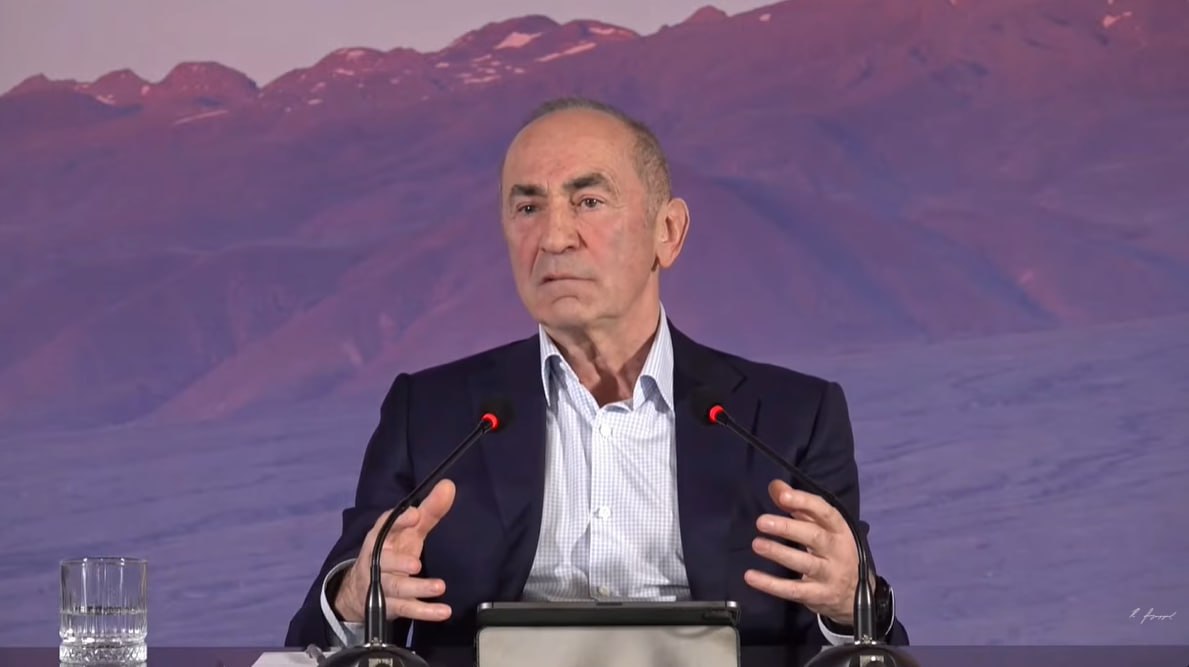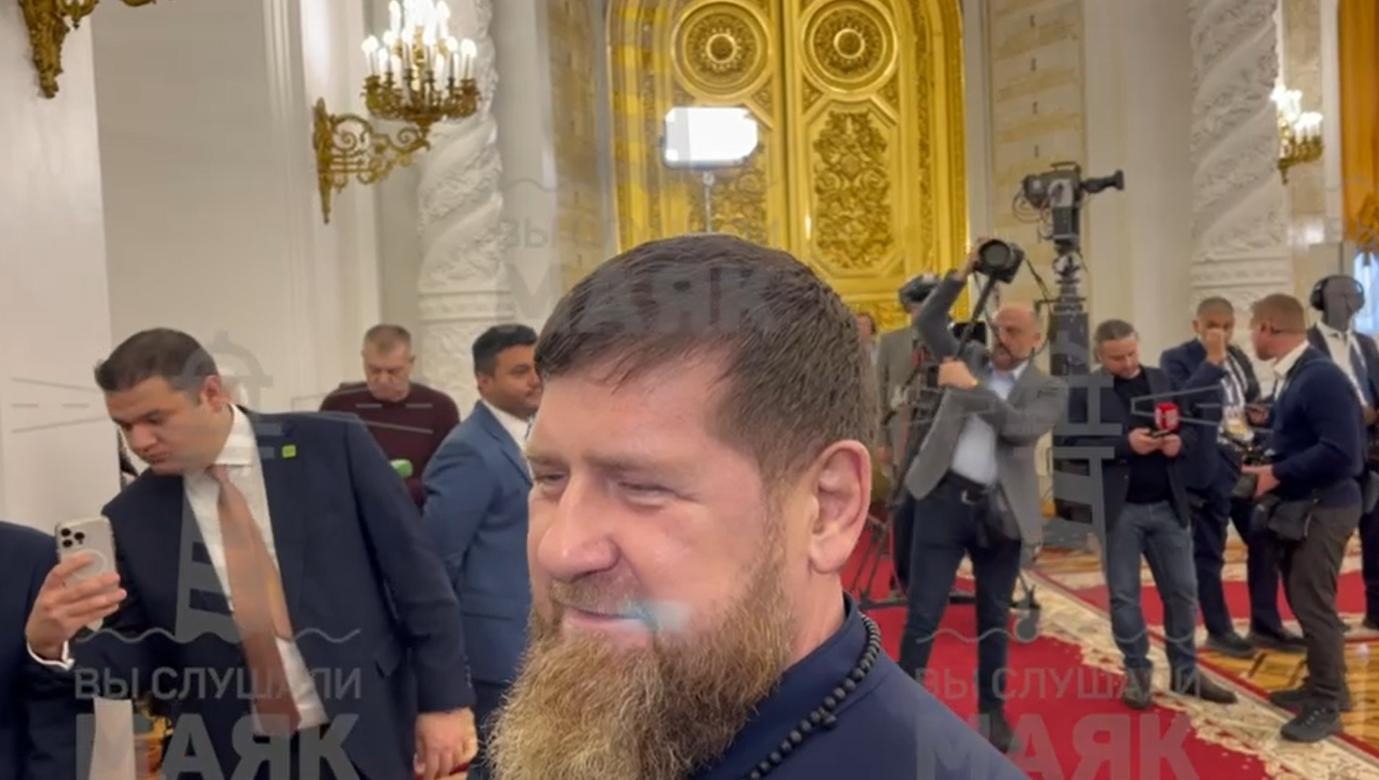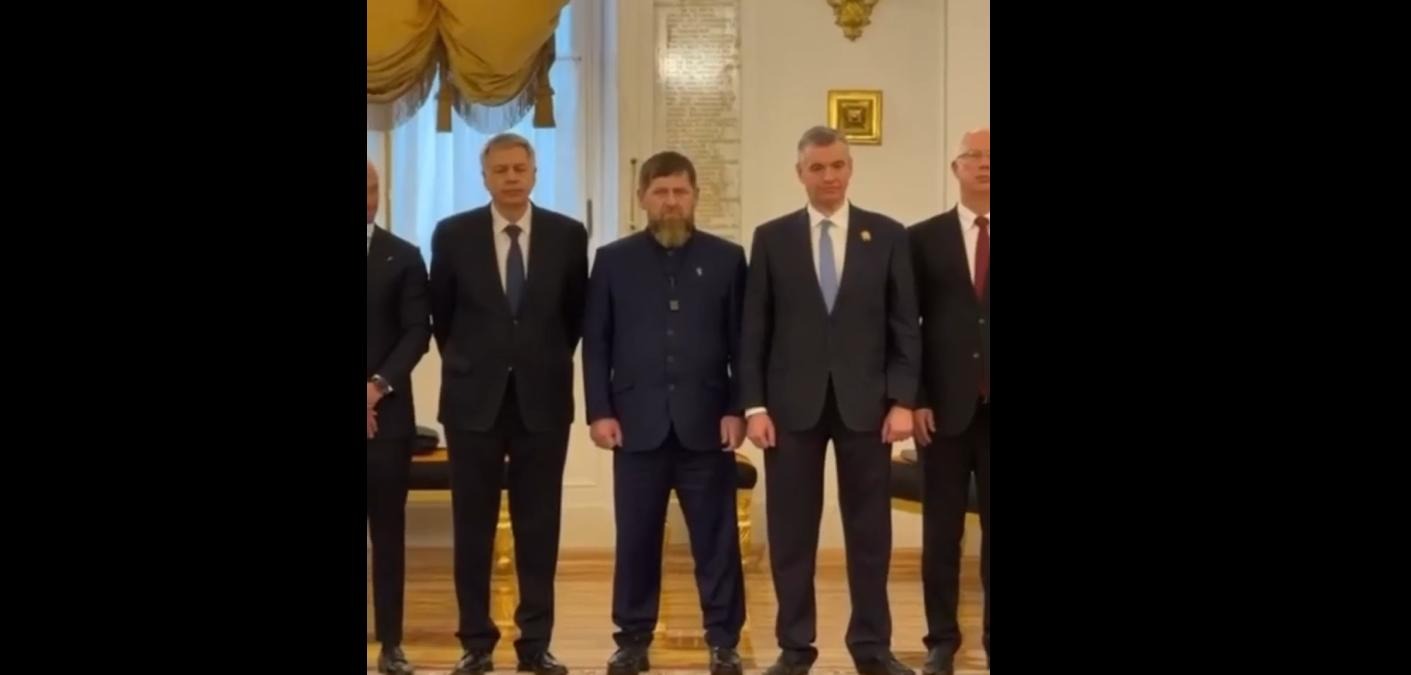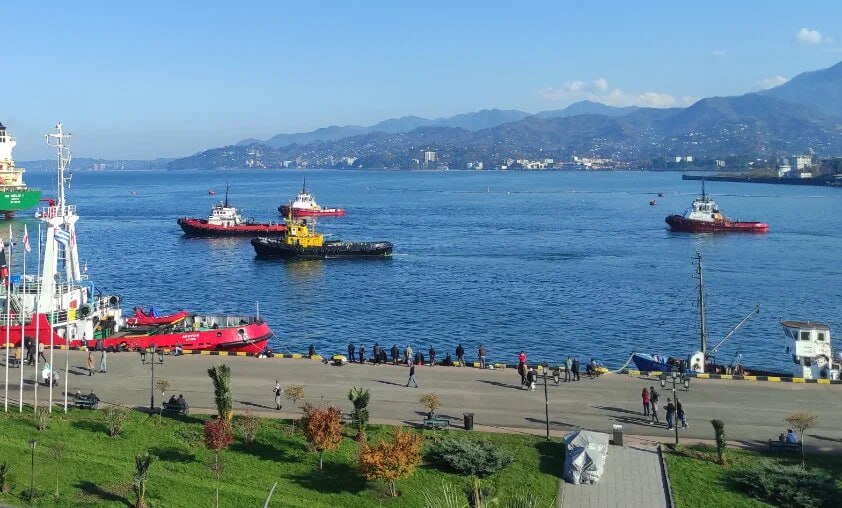Former Armenian President Robert Kocharyan warned against the current government's flippant attitude toward possible harsh responses from Moscow. He believes the authorities fail to grasp the scale of the potential impact Russia could have, including tariff revisions and export blockages.
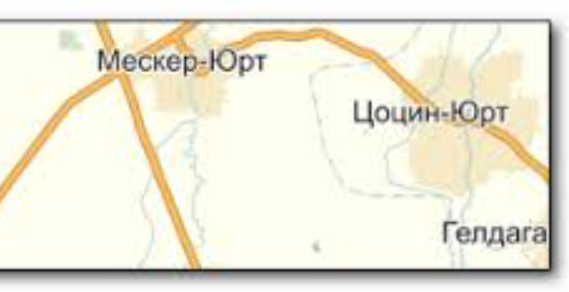
July 25, 2001
***
At about five o'clock Russian troops blocked the village of Tsotsin-Yurt. According to the stories of local residents, helicopters patrolled over residential buildings all night, and in the morning departure from the settlement was stopped. Having stopped a woman who had a train ticket in her hands and was trying to leave the village, the military announced that a special operation was beginning and that it would last three days.
“Your Allah helped us,” it was announced to the people gathered at the post, mostly women, “we killed Baraev, Tsagaraev, God willing, and we will kill all the Tsotsin-Yurt bandits.
From the conversations of the military, it became clear that a convoy from the village of Khankala was heading for a “cleansing operation”. In the afternoon she entered the village. According to eyewitnesses, the convoy included at least 250 armored vehicles: Ural vehicles, tanks, armored personnel carriers. Most of them have side numbers and registration plates smeared with paint or covered with a tarpaulin. Local residents managed to make out the number of one tank, the 343rd, which, according to them, was constantly moving along the streets of the settlement. Helicopters landed on the outskirts.
Tsotsin-Yurt is divided into two parts along the Khulhulau River: upper and lower. They are interconnected by bridges, two pedestrian and automobile. The military immediately took them under heavy guard. The streets were also blocked, it became impossible to move freely along them.
On the first day, the military took away three people from the upper part of the village, and four more were detained in the lower part: the father of seven children, Lechi Birievich Ediev, born in 1947, Ruslan Ediev, Yakub Yakhyaev, 23-24 years old, and his second cousin. The last two arrived from the city of Nazran (Ingushetia): at the checkpoint they were allowed to enter the besieged village and were already detained there.
All of them were brought to the site near the forest belt between Tsotsin-Yurt and the neighboring village of Geldagan. There were pitched tents, there were military equipment. Soon, women began to approach this place demanding the release of detained relatives. The military, firing machine guns at their feet and into the air, tried to drive them away. However, then they allowed me to stay and even took out a flask of spring water.
Women sat in the sun (at a temperature of +40 degrees) all day. By evening, the military warned that they would shoot to kill if they did not disperse. At about 21:00, a helicopter began to circle over them. After some time, someone approached them, introducing himself as "Nikolai Mikhailovich", and, saying that it was he who flew in a helicopter, and before that he gave the command to take out the water, suggested that everyone go home. He assured that nothing would happen to the detainees. At about 11 p.m., they were indeed "liberated" - they were thrown out at the bridge in the center of the village blocked by the troops. Some of them managed to reach their homes only in the evening of the next day.
On July 26, in the morning, the “cleansing” continued. “Along our street,” says an eyewitness, “six armored personnel carriers rushed by. After 10-15 minutes, a barefoot woman was already running after them. It was Baaeva. She lives near the highway at the beginning of the village. Her three brothers were taken from her. She was crying and screaming so helplessly!.. People stopped her. We decided to go to the other side of the river where the detainees were taken. Little by little, women began to pull up, whose relatives were also detained. It is impossible to get through the village, but somehow we managed to get to the bridge. There, the military rudely shouted at us: “What do you need! Get out of here!” We tried to explain that our relatives had been taken away from us. “You can’t cross the bridge, go along the river.” We crossed the river to the other side, to the other side of the village, which is closer to Geldagan.
Soldiers stopped us five hundred meters from the clearing where the people who had been taken away from the village were... An hour and a half later, a military man came out, introduced himself as "Slava" and said: "The only thing I can do for you is to take out the lists of the detainees. And then I do it simply out of human sympathy for you.
And he did make lists. What happened next is hard to describe. Cars with groups of detainees constantly drove into this clearing. New women came running - relatives of those who had just been taken away. Since the village was still blocked off, many simply tried to shout at us from the other side of the river: “So-and-so, so-and-so was taken away.” From the glade in small groups began to withdraw the "filtered". Women surrounded them with a ring and took them home.
One of the groups of the released and their relatives was stopped by the military at a post in the center of the village and kept there until the evening. Intimidated by shelling, they were released before dark. According to the testimonies of local residents, three people remained in the clearing from among those captured that day.
The most massive detentions and checks in Tsotsin-Yurt apparently took place on 26 July. In one of the rural quarters, for example, the military captured about three dozen people. They were tortured with electric current, beaten, poisoned by dogs.
The same thing happened on the third day of the “cleansing”. From early morning, new batches of people captured in the village began to be brought to the clearing. Women also rushed there. One of them told an employee of Memorial Human Rights Center about how the liberation took place: “...We sit and watch what is happening in the clearing. A paddy wagon leaves the territory, and all the women get up. The paddy wagon makes a circle, stops, and guys in red, blue, white T-shirts jump out and run from there. Mothers begin to recognize their sons, cry, run to them. This is where some people faint. Let's go to the guys. Some of them cannot stand on their feet. "What happened to you, what did they do to you?" "Tok and dogs..."
They were all passed through the current. Both the boys and their mothers run, but then someone shouts: “Women, leave them, they will get home. Others need to be pulled out, they poison guys with dogs, torture them with electric current! .. "It was a terrible picture."
During the “cleansing” period, the military detained at least 73 Tsotsin-Yurts. Among them, according to Memorial HRC, were:
1. Lechi Birievich Ediev, born in 1947;
2. Ruslan Ediev;
3. Yakub Yakhyaev, 23–24 years old;
4. Adam Alavdievich Basaev;
5. Khadzha Gaibovich Lamashev;
6. Musa Khezirovich Modaev;
7. Ruslan Khuseinovich Magomadov;
8. Said-Emi Ilyasovich Dudkhadzhiev;
9. Aslambek Said-Khasanovich Magomadov;
10. Timur Ilyasovich Dudkhadzhiev;
11. Salambek Aslambekovich Khasaev;
12. Elim-Pasha Dzhugeydovich Belimurzaev;
13. Turpo (Turko) Dzhukhoytovich Bimurzaev;
14. Deni Nozhaevich Khaledov;
15. Lom-Ali Turkaevich Sultanov;
16. Said-Salah Iliyasovich Dudkhadzhiev;
17. Ibrahim Mayerbekovich Aliyev;
18. Said-Selim Ilyasovich Dudkhadzhiev;
19. Arbi Khizirovich Dudkhadzhiev;
20. Arap Khizirovich Dudkhadzhiev;
21. Ramzan Akhmedovich Baaev;
22. Sultan Elsulaev;
23. Khizir Dautmerzaev, born in 1954;
24. Ramzan Imranovich Agaev;
25. Rizvan Imranovich Agaev;
26. Lecha Imranovich Agaev;
27. Sukhrab Islamovich Taramov, born in 1979;
28. Ayub Dakaevich Taramov, born in 1980;
29. Rustam Lemievich Khusikhanov, born in 1978;
30. Ramzan Lemievich Khusikhanov, born in 1979;
31. Lechi Humaidovich Khusikhanov, born in 1957;
32. Salakh Saipudievich Magomadov, born in 1978;
33. Vez (Vezm) Mazaevich Mazaev, born in 1963;
34. Khusain (Khussein) Shamitievich Magomadov, born in 1980;
35. Magdi Magomadov; 36. Khizir Abukhanov, born in 1966
Except for five people – Idris Abukhanov, Khusein Magomadov, Vezi Mazaev, Ramzan Khusikhanov and a resident of the village of Geldagan Lomaliev – all of them were released. Before being released, they were forced to sign that they had no claims against the military and that they were treated well.
During the "cleansing" the military robbed people. They demanded money from an elderly and half-blind woman named Khazan, who lives on Shkolnaya Street. When she tried to explain in bad Russian that she didn’t have them, the military hit her on the bridge of her nose and, “installing” a machine gun on her shoulder, shot all her property in the yard. Everything was taken from the houses, from money to underwear. They addressed women in a cheeky, rude and cynical manner, there were cases of sexual harassment.
On July 28, the military began to leave Tsotsin-Yurt. A column with a large number of armored vehicles left the village in a westerly direction. Local residents were told that a "cleansing operation" in the village of Mesker-Yurt was next.
From the book "People Live Here", Usam Baisaev, Dmitry Grushkin, 2006
